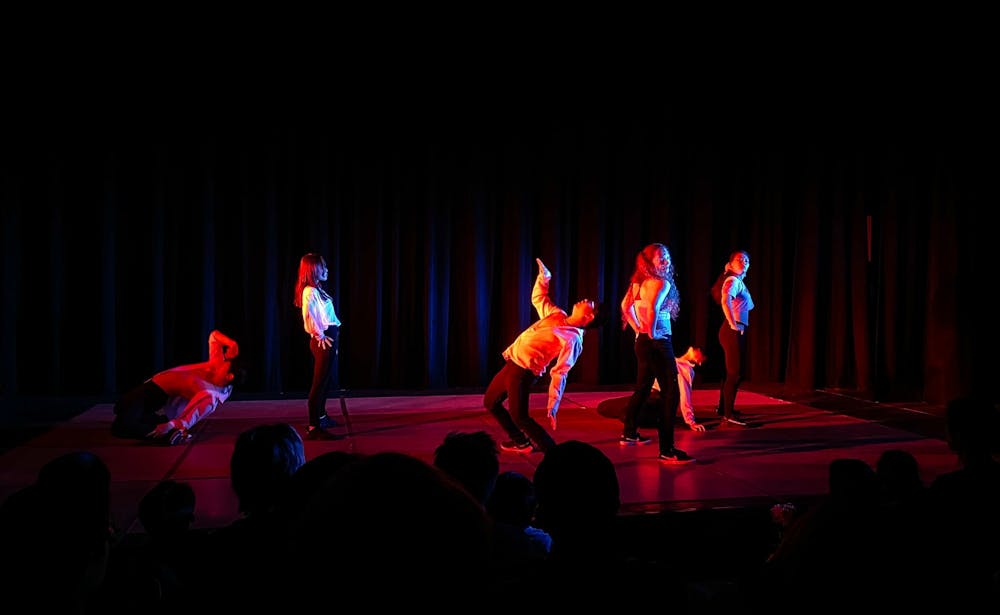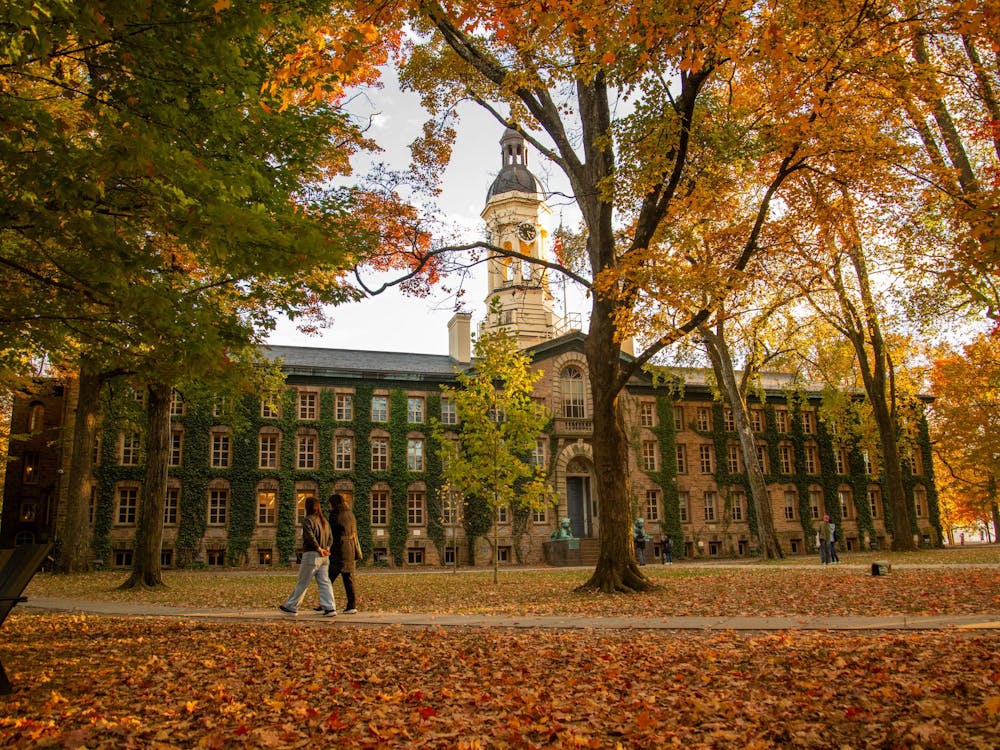In March 2020, amidst the rapidly spreading COVID-19 pandemic and nationwide shutdowns, the University announced the transition from in-person classes to remote learning for the duration of the spring semester. Educational and extracurricular programs shifted to Zoom and other virtual platforms as students were asked to return home and remain off campus.
Since fall 2021, educational and extracurricular activities have slowly returned to take place in-person. Clubs struggled with a lack of connection and institutional memory during the pandemic, but some have noticed a growth in membership and commitment post-pandemic, to levels beyond those in 2019.
During the pandemic, many activities were moved online as campus groups utilized virtual means of communication to continue their services and programs.
Orange Key, Princeton’s admissions tour service, found ways to adapt to COVID-19 restrictions. In an email to the ‘Prince,’ Sam Kagan ’24, an Orange Key co-chair, wrote, “During the pandemic, the Orange Key Guide Service began offering Tiger Walks — synchronous Zoom-based tours that provide[d] a genuine look at our campus to prospective students from around the world.”
Kagan is a former head Data editor for the ‘Prince.’
Today, in-person tours once again crisscross campus multiple times a day, with Tiger Walks taking place twice a week. To Kagan, Tiger Walks are integral in ensuring that students of all backgrounds have access to Princeton and reflect Orange Key’s commitment to making this possible.
Other organizations like the Princeton Triangle Club, the University’s live musical comedy troupe, were forced to creatively consider other means of production. Imaan Khasru ’23, the former President of Triangle, told the ‘Prince’ that the pandemic forced the club “to rethink what it meant to be in the club and doing the show.”
Gabriela Veciana ’24, the president of Triangle, described the different ways the club adapted. In Fall 2021, Triangle Club filmed, edited, and produced a full original musical feature film called “All Underdogs Go to Heaven.”

“We mailed tripods and ring lights all across the world, we even enlisted alumni to take part in it. We wanted to honor the work of the writers workshop and thought it was a great opportunity to try something new!” Veciana wrote.
“Triangle is more than a show though, and first and foremost a club and community. Keeping our community alive was difficult,” she added.
During the pandemic, Veciana described that Triangle lost a sense of “institutional knowledge.” Traditionally, older members within Triangle pass the torch of knowledge to the new members of Triangle as they navigate the technical aspects of theater. Veciana described “the break in that pattern” and the strong emphasis that Triangle has placed on rebuilding in the past few years.
However, both Khasru and Veciana described how community building and rebuilding was facilitated throughout the pandemic by the upperclassmen who hosted various virtual social events ranging from Zoom watch parties to video game tournaments so that the new members could feel connected to the Triangle community.

Since then, Veciana concluded that “people are energetic and excited about the club, and everyone sort of knows what's going on again.”
Kharsu expressed similar sentiments, describing her excitement “to see the club rebuilding piece by piece.”
“As someone who’s been a student leader in Triangle for 3 years now, it’s a huge weight off us to have back structured time together. We’ve got a lot more hands on deck now because we all feel this together,” she concluded.
Max Chan ’23, former president of TigerLaunch, a student-run entrepreneurship competition, felt optimistic about TigerLaunch’s adaptation during the pandemic.
“We adapted quickly by ramping up our programming and campus engagement activities, which resulted in increased involvement from both members and non-members alike,” he wrote.
Chan believes this has paid off, as the TigerLaunch community was able to remain strong despite the challenging circumstances.
Chan did feel that being in-person did have some unique advantages. “While virtual communication was necessary during the pandemic, there's just something special about being in the same physical space as others,” he added.
Since resuming in-person activities, TigerLaunch received the most applications in its history. Moreover, the TigerLaunch team has recently been traveling all over the world, from Austin to Singapore, to continue running competitions while engaging with institutional partners globally.
“Overall, we're excited to see continued growth and enthusiasm for entrepreneurship among students worldwide,” Chan said.
Princeton’s Entrepreneurship Club (E-Club), of which TigerLaunch is a subsidiary, also shared growth since the pandemic, with membership increasing from roughly 300 students to over 500 across 17+ teams.
“We had tremendous interest from the classes of 2024 and 2025 once we came back to campus, which I would guess was a result of both the pandemic and growing interest in entrepreneurship,” Rohan Jinturkar ’23, former co-president of E-Club, told the ‘Prince.’
With campus restrictions in place, E-Club shifted events online so that teams could remain active over the course of the virtual year. Jinturkar added that General Membership was promoted during the pandemic to “to make E-Club more accessible to students interested in opportunities and events without being part of a specific team.”
Jinturkar told the ‘Prince’ that he is excited about conducting in-person TigerTreks again post-pandemic — trips to meet founders and venture capitalists.
Morgan Teman ’23, a former co-director of IgniteSTEM, an E-Club sub-team focused on STEM education, emphasized the challenges of running a team with campus restrictions in place.
“COVID was the single most devastating blow to education, especially STEM, where hands-on, collaborative work is imperative and most impactful,“ she wrote to the ‘Prince.’ Teman said that “Coordinating among a team that spanned multiple time zones was a challenge, as was motivating and inspiring each other to work towards what felt like an abstract goal.”
Teman added that the inability to have in-person networking opportunities was a detriment to the club and that she “was extremely optimistic for the return of in-person programming.”
Teams reliant on in-person meetings have seen growth post-pandemic as well. Aidan Lynott ’23, a member of Princeton’s Club Flag Football team, told the ‘Prince’ that virtual game nights were imperative to keeping the club active during the pandemic.
Lynott noted that new members did join during the pandemic. Lynott emphasized the importance of small-group practices in integrating these members and preparing the team to play football again as COVID-19 restrictions slowly eased.
Since then, Lynott wrote, “there was a difference that wasn’t obvious at first, but has become more obvious as time went on: the club was getting bigger.”
“Practices now consistently hit 20+ people, a number that would’ve been very hard to reach during my freshman year; back then, some of the least attended practices during busy parts of the semester could only have five or six people out there, and now having that few people at practice is an impossible thought,” he adds.
Lynott believes that flag football will only continue to grow and expressed his excitement for the club’s future.
Other organizations like WPRB 103.3, Princeton University’s radio station, described student involvement remaining the same pre and post-pandemic, but mentioned how the pandemic forced program directors to reconsider the way students interacted with the community.
Iris Ushizima Sabino ’24, former president of WPRB, wrote to the ‘Prince,’ that since the pandemic, WPRB has been restricted in who could be invited into the broadcast studio.
“It’s had a huge impact, since WPRB has always been an outward-facing, community-centered organization. So while student involvement has stayed strong, our ties to the community have faced some challenges,” she wrote.
“We used to interact frequently with community members within our broadcast range (bands, businesses, nonprofits, interviewees), we even used to recruit DJs outside of the Orange Bubble,” she remembered.
Since 2020, the pandemic has altered the trajectory for many campus organizations, forcing program creators to think of creative solutions to bolster student engagement and changing the dynamics of certain activities as clubs slowly resume in-person opportunities.
Jocelyne Wijaya is a news contributor for the ‘Prince.’
Please send any corrections to corrections[at]dailyprincetonian.com.
Correction: A previous version of this article suggested Orange Key tours take place twice a week. In fact, in-person tours take place multiple times a day, and Tiger Walks take place twice a week. The ‘Prince’ regrets this error.








